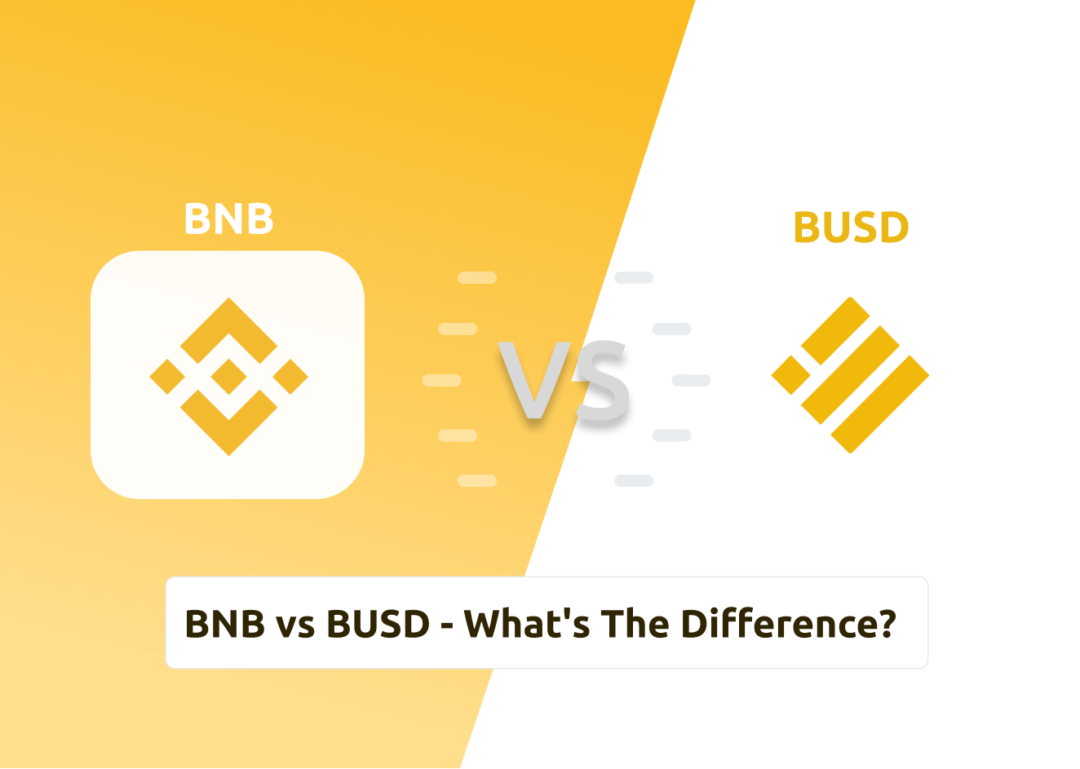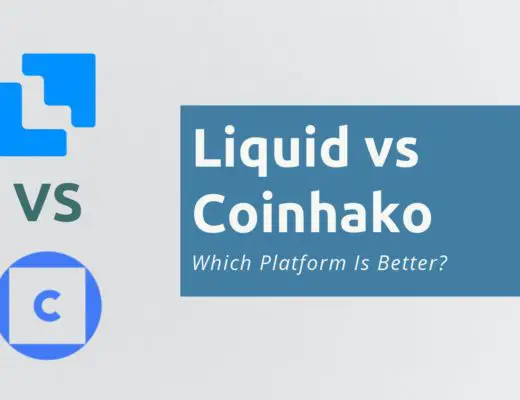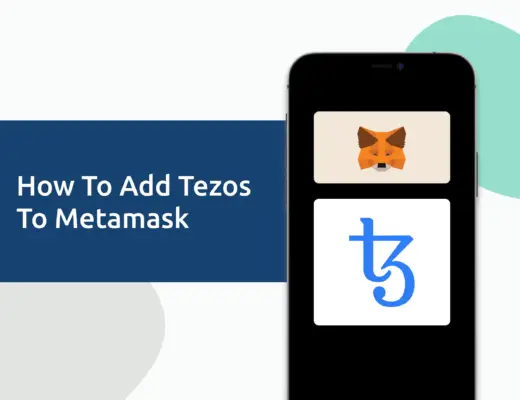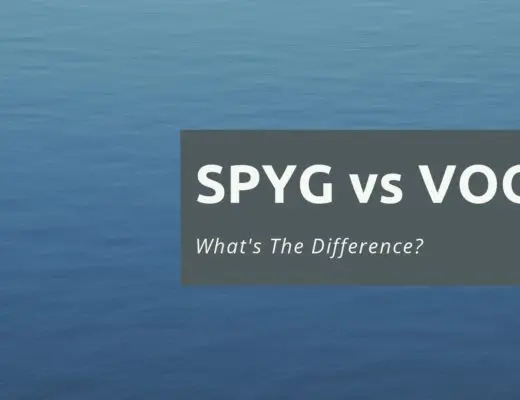Last updated on March 2nd, 2023
Binance currently has 2 cryptocurrencies: Binance Coin (BNB) and Binance USD (BUSD).
How are these 2 cryptocurrencies different, and why does Binance need them both?
Here’s what you need to know:
Contents
Is BNB the same as BUSD?
Although both BNB and BUSD were created by Binance, they serve different purposes. BNB is the utility token of the Binance Exchange and the Binance Smart Chain, and you are able to use it to process transactions and obtain trading fee discounts on Binance. Meanwhile, BUSD is a stablecoin, with its value being pegged to 1 USD which can be used in the cryptocurrency world.
Here is an in-depth comparison between these 2 cryptocurrencies:
Use cases
Binance was created to be the utility token of the Binance. Initially, it was just used as a means to obtain a trading fee discount. This meant that if you paid for your trading fees using BNB instead of the currency that you were trading in, you will be eligible for lower fees.
Binance did mention that the trading fee discount will slowly decrease from the 4th year (reduced from 25% to 6.75%), but they will continue to retain the 25% discount until 2022.
Moreover, with the introduction of the Binance Smart Chain, the use case for BNB has expanded as it powers the entire Binance ecosystem.
There are many different projects that have been started on the Binance Smart Chain, and the most well-known one would be Pancakeswap.
BNB is also used to approve transactions that you want to make when you’re interacting with the Binance Smart Chain.
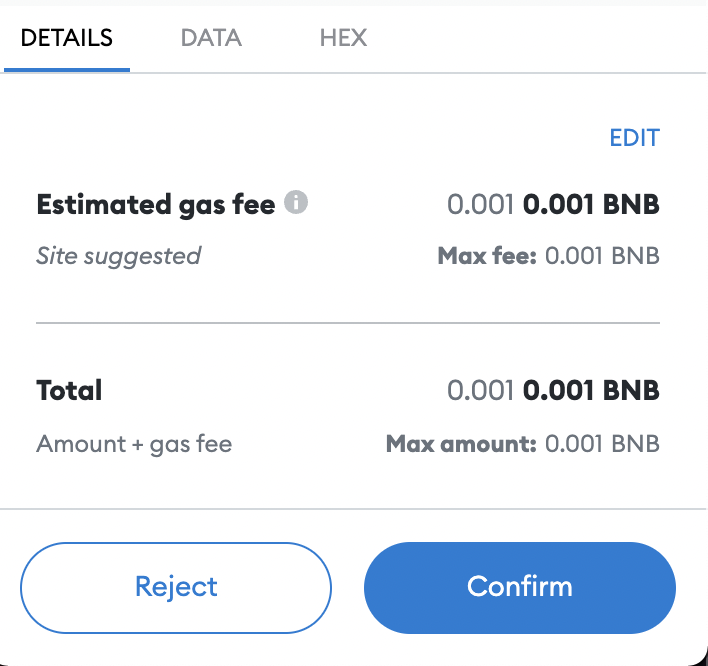
Moreover, if you use the Binance Visa Card, you will be able to receive cashback in the form of BNB.
BUSD is a stablecoin
Meanwhile, BUSD is a stablecoin where 1 BUSD is supposed to be equal to 1 USD. Compared to other stablecoins such as USDT, BUSD has a larger amount of its reserves (96%) in cash and cash equivalents.
In contrast, USDT only has 2.9% of their reserves in cash!
As a stablecoin, this means that the value of BUSD is backed by the value of USD. In theory, when you choose to redeem 1 BUSD, you should be able to receive 1 USD in return.
BUSD has been heavily regulated from the start, and they are compliant with the New York State Department of Financial Services (NYDFS).
The main use cases of BUSD is to be a trading pair for other cryptocurrencies, or to earn interest on it.

You can use it as a hedge against the volatility of other crypto assets that you own too.
Companies behind BNB and BUSD
The Binance Coin (BNB) was started with the launch of the Binance exchange in 2017.
Meanwhile, Binance collaborated with Paxos, a New York-regulated financial institution to create BUSD. Paxos holds reserves of BUSD, which are all the US dollars that back up the BUSD.
BUSD was only started in 2019, which is 2 years later compared to BNB.
Stability of price
BNB will have more fluctuations in price compared to BUSD. This is because BUSD is a stablecoin, and 1 BUSD should be equal to 1 USD.
Binance has also been conducting a burning of BNB tokens, where Binance buys back a portion of BNB and will destroy it. In theory, this will reduce the supply of BNB which may result in changes in price.
As such, BNB will be the more volatile token to hold. However, if you believe in the Binance ecosystem, you would have the faith that BNB will increase in price if you hold it in the long term!
Available trading pairs
On the Binance Exchange, you should be able to trade any cryptocurrency with either BNB and BUSD.
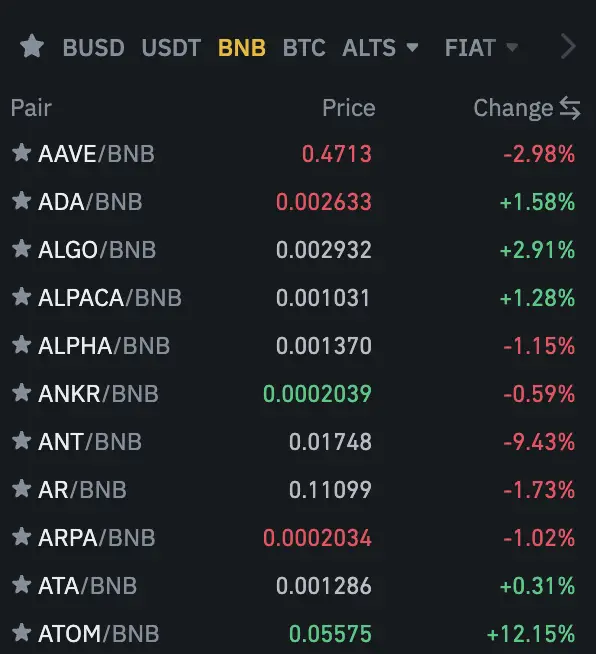
Since they are both created by Binance, you will be able to use either one to buy most cryptocurrencies on the platform. However, the price of BNB is more volatile, which may affect the amount of cryptocurrency that you buy, while BUSD is more stable.
Availability on other platforms
Apart from the Binance Exchange, both cryptocurrencies are available on other platforms too:
Compared to BNB, BUSD is less common and is not supported in some exchanges. This is because there are more popular stablecoins that these exchanges use, such as USDC and USDT.
Available networks
Here are some of the networks that you can use to withdraw BNB or BUSD from Binance:
| Network | BNB | BUSD |
|---|---|---|
| BEP2 | ✓ | ✓ |
| BEP20 | ✓ | ✓ |
| ERC20 | ✕ | ✓ |
The ERC20 version of BUSD is the native version of BUSD, while the BEP20 is a Binance-Peg version of BUSD. You can read more here to find out the differences between them.
If you’re looking to withdraw or deposit BUSD, you may notice that the BEP20 and ERC20 deposit addresses are similar to each other.
BUSD is more versatile, and you are also able to use it on multiple networks, including:
- Avalanche C-Chain
- Harmony ONE
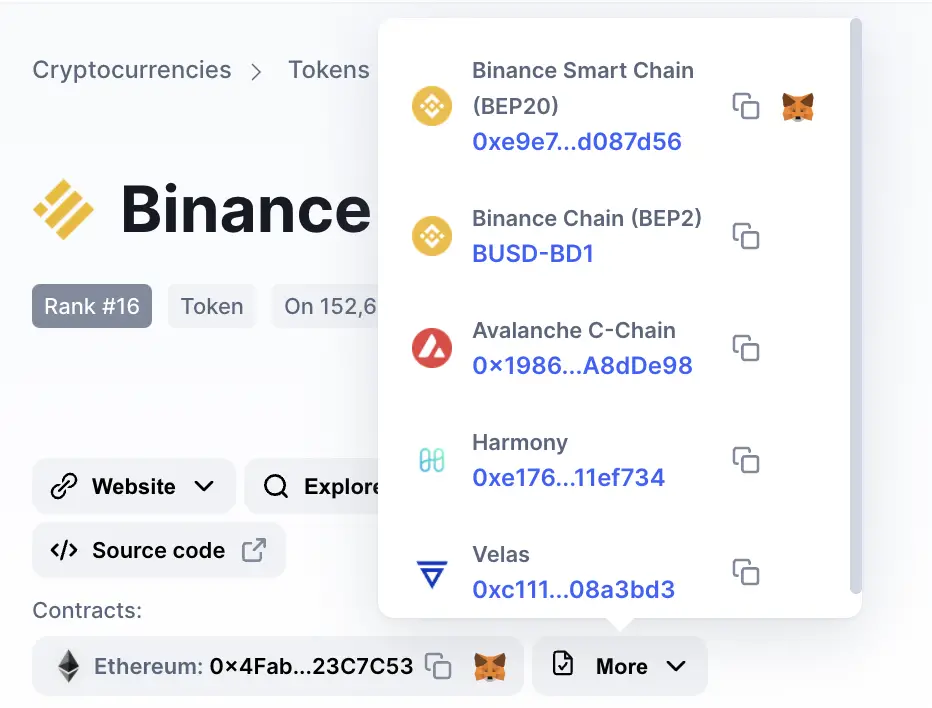
As such, BUSD is supported on more networks compared to BNB. This means that you can use BUSD for certain projects that are hosted on other blockchain networks, and not just the Binance Smart Chain.
When you are sending both BNB or BUSD between platforms, it will be good to double check the network that you’re using. For example, Crypto.com allows both BEP2 and BEP20 withdrawals on their platform, so it’d be good to always double check!
Earning interest
Here are some platforms where you can earn interest for each cryptocurrency:
There are more platforms where you can earn interest on BNB compared to BUSD.
However, you may want to take note of which networks the platform supports before sending your cryptocurrencies over. If you choose to send BNB to a BEP2 address via the BEP20 network, your crypto may be lost forever!
Verdict
Here is a comparison between these 2 cryptocurrencies:
| BNB | BUSD | |
|---|---|---|
| Use cases | Native token of Binance and Binance Smart Chain ecosystem | Stablecoin |
| Companies involved | Binance | Binance and Paxos |
| Stability of price | More volatile | Pegged to 1 USD |
| Available trading pairs | Similar | Similar |
| Availability on other platforms | More platforms | Fewer platforms |
| Available networks | BEP2 and BEP20 | ERC20, AVAX, ONE, BEP2 and BEP20 |
| Earning interest | More platforms | Fewer platforms |
As such, both BNB and BUSD are rather different!
Conclusion
Although BNB and BUSD were created by Binance, they both serve different use cases in the Binance ecosystem.
If you’re looking to use the Binance ecosystem (particularly the Binance Smart Chain), it will be better to have some BNB in your wallet to approve transactions (especially for DeFi projects).
Since BUSD is a stablecoin, it has better uses as a store of value, particularly in the volatile world of cryptocurrency!
👉🏻 Referral Deals
If you are interested in signing up for any of the products mentioned above, you can check them out below!
Binance Referral (Receive 5% off your trading fees)
If you are interested in signing up for a Binance account, you can use my referral link.
You will be able to receive 5% off all of your trading fees on Binance!
Are you passionate about personal finance and want to earn some flexible income?

